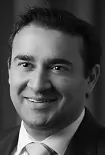Key Points:
Courts and tribunals will continue to struggle to provide any clear or coherent guidelines as to what activity is essentially private in nature or in the course of employment.
In some circumstances the question of whether an injury sustained by a worker was sustained "in the course of employment" can be a difficult one. While injuries sustained at work or during work activities are more clear-cut, what about injuries that occur outside working hours or in non-working periods but during a work trip? Employers had thought that the High Court's decision in the Comcare v PVYW [2013] HCA 41 would go a long way to providing definitive guidance to courts and tribunals that injuries arising from private activities done during a work trip would not be considered in the course of employment. A recent decision in the Federal Court appears however to have clouded the issue further.
The FIFO worker and the fight
In Westrupp v BIS Industries Limited [2015] FCAFC 173 the Full Court of the Federal Court of Australia were dealing with an appeal in relation to an employee employed as a fly-in fly-out worker who had attended a tavern in the evening of the shift change and was physically assaulted by another employee. The tavern was in the camp that the FIFO workers stayed at between their shifts. The key question was whether the employee was injured in the course of his employment.
At first instance the Administrative Appeals Tribunal had applied PVYW to find that there was no connection between the applicant's presence at the tavern and involvement in a fight, and his employment. It noted the words of the High Court in PVYW that the establishment and provision of the tavern did not create a liability on the respondent "for everything that occurs whilst the employee is present at that place or not".
On appeal: the injury was at work
On appeal, the Full Court found that the injury was sustained in the course of employment. It held that the applicant was induced to be at the camp (within which the tavern was located) during his shift and was injured at that place. He was not guilty of gross misconduct; the injury occurred in an interval in an overall work period and therefore was in the course of employment.
It was wrong to treat the place of injury as just the tavern; the Tribunal should have taken into account that the place of injury was the camp more broadly (which was supplied as an incident of his employment) and that his injury could have occurred at any part of the camp the applicant was encouraged by the employer to use.
The Court referred to other scenarios where the applicant would have been entitled to compensation such as if he had been injured by a fire at his quarters while sleeping, or while showering, or had been struck by a car while returning to his accommodation. The Court also observed that the applicant was engaged in a recreational activity which was endorsed by the employer, using a facility which was an integral aspect of the facilities provided for the use of employees.
Have the goal posts moved?
This analysis would not have been controversial but for the fact that the High Court in PVYW, while endorsing previous authorities, did appear to clarify the test for whether employees engaging in essentially personal activities, even in a location where they are induced to be by their employer, would be considered to be acting in the course of employment.
The Full Court's analysis in Westrupp does not appear to be consistent with the analysis of the High Court in PVYW because in both cases it was strongly arguable that the employee had been engaged in private activities (sexual activity in a hotel room and drinking alcohol in a tavern) and in neither case was the employee engaged in misconduct (both activities were lawful and neither had been prohibited by the employer).
In the circumstances there does not seem to be any substantial rationale for suggesting that the cases should be treated differently - in both cases the employee was in location because of the employment and was on an interval between working shifts. In both cases they engaged in private activities and were injured.
Take-away points for employers: review policies and hope the courts will clear up the confusion
The decision in Westrupp illustrates the difficulty with the concept of "in the course of employment" in workers' compensation cases. Notwithstanding the decision of the High Court in PVYW it appears that courts and tribunals will continue to struggle to provide any clear or coherent guidelines as to what activity is essentially private in nature, and whether private activity in an interval between work at a place the employee is encouraged to be at will be considered the course of employment.
It is unclear at this stage whether the decision in Westrupp will be appealed and whether the High Court will be given another opportunity to clarify the apparent inconsistency between authorities on this issue. In the meantime, employers who regularly encourage or require workers to be at certain locations outside working hours (such as FIFO camps, work trips, conferences, working away from home) ought to consider creating or updating policies on the conduct of employees outside working hours where there is a connection with work so as to try to minimise the risk of employees harming themselves or others.
Clayton Utz communications are intended to provide commentary and general information. They should not be relied upon as legal advice. Formal legal advice should be sought in particular transactions or on matters of interest arising from this bulletin. Persons listed may not be admitted in all states and territories.


